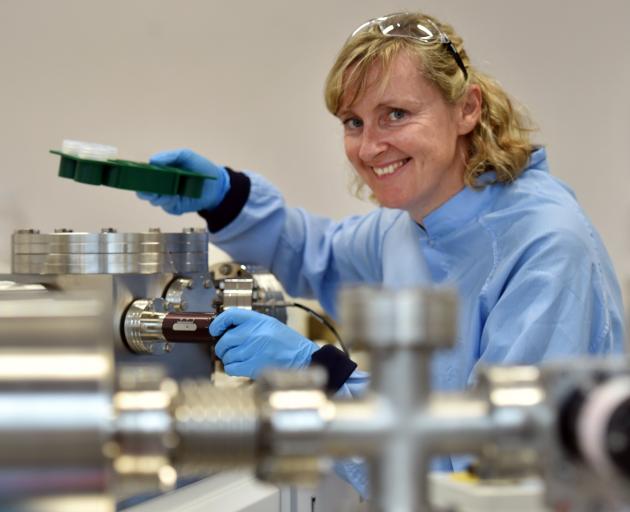
Prof Claudine Stirling, of the university chemistry department, made that point this week. Previous discussions about future global warming threats to New Zealand have included worries about adverse climate change and more frequent extreme weather events, as well as rising sea levels and increased ocean acidification, the latter damaging shellfish and other aquatic life.
The Otago study focused on a very low oxygen phase in the world’s oceans, known as an oceanic anoxic event (OAE) — about 94 million years ago — arising, partly, from greatly heightened levels of carbon dioxide in the atmosphere.
This, in turn, apparently resulted from a big increase in volcanic eruptions.
Prof Stirling said an innovative testing method used by Otago scientists, working with overseas colleagues, had provided more exact information about the major low oxygen period, which ran for about 900,000 years, with a mid-point about 94.1 million years ago.
The Otago-led research team had uncovered a great deal more detail about the extensive low oxygen event, including a period of partial oxygen recovery.
This OAE period was more severe and more long-lasting than current global warming-related changes.
But this had given the scientists an extreme case study to help understand how the oceans were affected by high atmospheric carbon dioxide emissions.
Scientists estimated ancient oxygen levels by measuring naturally occurring uranium isotopes from ancient sediments that were once deposited in the ocean and were preserved on land at the white cliffs in the South of England, and in Italy.
More attention to potential reduction in oxygen levels in parts of the ocean was needed, including some potential long-term threats to New Zealand fishery interests.
People had been "thinking about other aspects"of global warming effects, but the threat posed by low oxygen levels was "definitely important" when considering "what we might be facing in the future".
The research would also help other scientists seeking to clarify likely conditions in New Zealand waters by about 2050, to refine their modelling work to provide more accurate estimates.
She acknowledged New Zealand had one of the world’s largest maritime economic exclusion zones, and relied "so much on our coast and other environments" for fishing and aquaculture.
Former research fellow Dr Matthew Clarkson, previously of the Otago department, used a "revolutionary new tool" to examine how the oceans responded to climate change in the past.
The study involved working with Oxford, Exeter and London Universities and has just been published in the Proceedings of the National Academy of Sciences.
The resulting ability to predict what could happen was a significant breakthrough. It helped scientists to "understand the missing piece of the puzzle: what happens to oxygen levels in our oceans" when affected by global warming, she said.
Advertisement

